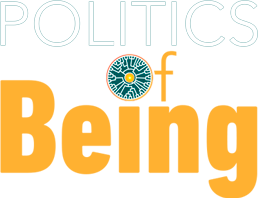
Why “being” or “human flourishing” is a better development paradigm than sustainable development?
Only by flourishing can a tree sustain itself, the birds, the bees and the whole ecosystem it is part of
Let’s first have a look at the definition of sustainable development. While its objective of meeting “the needs of the present without compromising the ability of future generations to meet their own needs” is valid, the often-proclaimed need to find a balance between economic growth, social equity, and environmental protection to achieve sustainability can be misleading. With its relatively short-term perspective, economic growth for its own sake often trumps social equity and environmental concerns, which it tends to see as limitations. Finding a balance between these three competing objectives is inherently difficult, and that is why sustainable development, which is a compromise, is often a very ambiguous concept (which can explain its political success). Indeed, what do we want to sustain? The Earth and our societies or “development” as we know it? Isn’t it rather the time for a deep human, social, and environmental regeneration? Is economic not rather a means for our well-being than a goal in itself? I think we should aim toward the flourishing of the whole Earth community, and accept the fact that sustainability is a never-ending adaptive journey to changing circumstances, grounded in the evolution of our mindsets, values, and human capacities.
The sustainable development concept lacks the inner strength to become an inspiring force for transformation.
On the contrary, “being” and inner development as the basis for human flourishing can go hand in hand with social and environmental regeneration. Science is starting to show how inner development, our relationship with one another and with nature are the bases for authentic human flourishing. Reciprocally, research highlights how individuals with higher well-being are reported to have more sustainable attitudes and behaviors. Interestingly, analyses have shown that social and environmental benefits from happiness stem from a “eudaimonic” (“developing the best in oneself, in accordance with one’s true self”, what I call “being”) and not a hedonic (search for pleasure, comfort and enjoyment) orientation to happiness. On the contrary, materialism and more generally the disconnection from our true needs/selves (what psychologists call extrinsic orientational motivation), have also been shown to be detrimental to our well-being and associated with more harmful attitudes and behaviors toward others and the environment.
Healthy humans go along with healthy communities and a healthy planet. It is time for a new development paradigm that nurtures and prioritizes “being” over “having” and benefits the entire Earth community as an interdependent whole.
